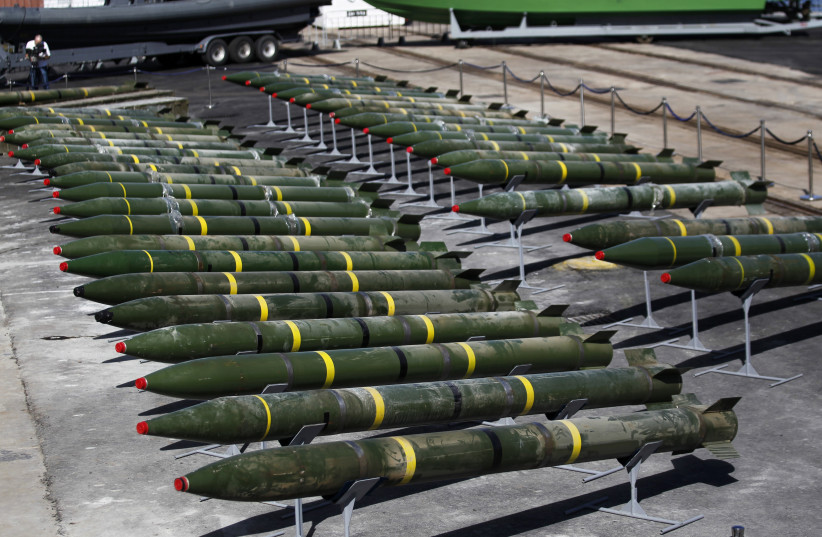Iran has been using European ports to "legitimize" its arms exports to Hezbollah, according to a report by The Telegraph on Thursday.
The report states that Hezbollah received arms, including missiles and bombs used on Israel, from ships that docked in Belgium, Spain, and Italy.
Antwerp, Valencia, and Ravenna were named as the major European ports involved; ships would dock here before arriving in Latakia in Northern Syria and then moving on to Southern Lebanon.
This attempted arms laundering was done due to Israeli military pressure in the form of air strikes on Iranian assets in Syria and Lebanon, senior intelligence sources told The Telegraph.
Ronen Solomon, an independent intelligence analyst based in Israel, told The Telegraph that the use of alternate trafficking routes through Europe was intended to "legitimize" Iranian arms cargo while "distracting attention" from direct shipments.

Israeli pressure on Iran
"The reason we see Iran’s efforts to transfer through the sea in the last month is because of Israeli attacks on air and land infrastructure in Syria to Lebanon, so we are seeing an increase in container shipments," Solomon said.
"Using Europe helps to hide the nature and the source of the shipments, switching paperwork and containers… to clean the shipments," a senior intelligence source in Israel told The Telegraph.
"Europe has huge ports so Iran is using that as a camouflage. It’s very easy to do manipulations in those big ports where things have to get moved quickly, rather than a small port where there will be more scrutiny."
The Telegraph identified five ships likely used in the arms laundering operation: the Daisy, Kashan, Shiba, Arezoo, and Azargoun. These five carried goods to Syria from the Bandar Abbas port in Iran, with several being recorded as docked at the ports named in the report.
The operation is believed to have been coordinated by the IRGC's Quds Force Unit 190 with the help of Hezbollah's Unit 4400.
"Some ships like Daisy are also docked next to the Iranian spy ship Behshad which sits in the Red Sea and receives regular supplies unloaded in Egyptian and Libyan ports," Solomon added.
The Behshad has been accused of helping to coordinate Houthi attacks on shipping in the Red Sea, with the US being urged to attack it.
